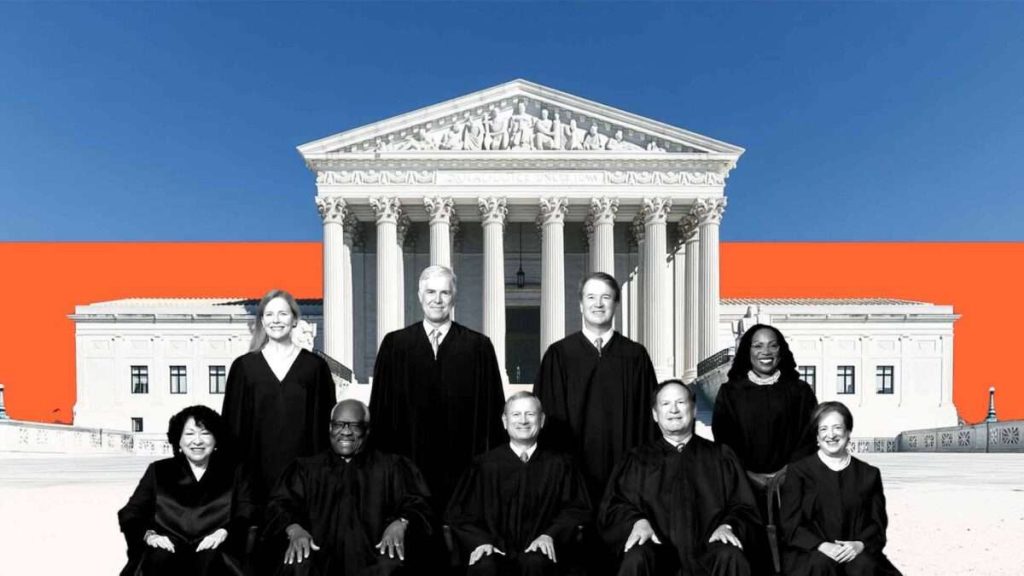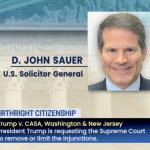The U.S. Supreme Court heard oral arguments on Thursday in a consolidated case arising from President Donald Trump’s executive order purporting to strip birthright citizenship from millions of U.S.-born children. However, the central issue before the Court was not the legality of Trump’s order; rather, the issue was whether federal district judges may issue nationwide injunctions that entirely block such orders from going into effect. Still, there was some discussion among the justices about the legality of Trump’s underlying order, and that discussion was probably not reassuring for Trump.
The most forceful critic of Trump’s position was Justice Sonia Sotomayor, who told Solicitor General John Sauer that Trump’s claim that birthright citizenship should be denied to the U.S.-born children of both undocumented immigrants and temporary lawful visitors ran counter to both “the plain meaning” of the Constitution and over a century’s worth of Supreme Court decisions. “As far as I see it,” Sotomayor said, “this order violates four Supreme Court precedents.”
A few minutes later, Justice Neil Gorsuch referenced Sotomayor’s point while questioning Sauer about the government’s argument that other, more laborious alternatives to a nationwide injunction might still be available to those seeking emergency relief from a presidential decree. “The argument, of course,” Gorsuch said, “is that the injury [from Trump’s executive order] is immediate and ongoing and, as Justice Sotomayor suggested, might be seriously questioned as to its compliance with this Court’s precedents.” The tone of Gorsuch’s voice suggested that he himself might be harboring some of those serious questions about the legalities of Trump’s order.
By contrast, the solicitor general seemed to be on steadier ground with Gorsuch and other justices when it came to the Trump administration’s desire to eliminate the practice of nationwide injunctions. Which is not exactly a surprise, since Gorsuch and others are already on record as critics of the practice. In a 2020 concurrence, for example, Gorsuch, joined by Justice Clarence Thomas, complained about the “problem” of “trial courts ordering relief that transcends the cases before them. Whether framed as injunctions of ‘nationwide,’ ‘universal,’ or ‘cosmic’ scope,” Gorsuch wrote, “these orders share the same basic flaw—they direct how the defendant must act toward persons who are not parties to the case.”
Judging by Thursday’s oral arguments, the Trump administration may be able to secure a majority in its favor on the nationwide injunction issue. Indeed, since there were already several justices looking to limit the practice, this case might provide them with the vehicle to do it.
But I would not bet the farm on Trump winning anything more than that, at least as this case currently stands. By my count, not a single justice said anything that was remotely supportive of Trump’s executive order itself, while several justices cast meaningful doubt on its legality.
So if Trump does win this case, which he might, it seems likely to be a narrow win on the issue of nationwide injunctions alone. The larger constitutional fight over birthright citizenship is likely to be postponed until a later date.
The post The Supreme Court May Rule for Trump on Nationwide Injunctions but Probably Not on Birthright Citizenship appeared first on Reason.com.







